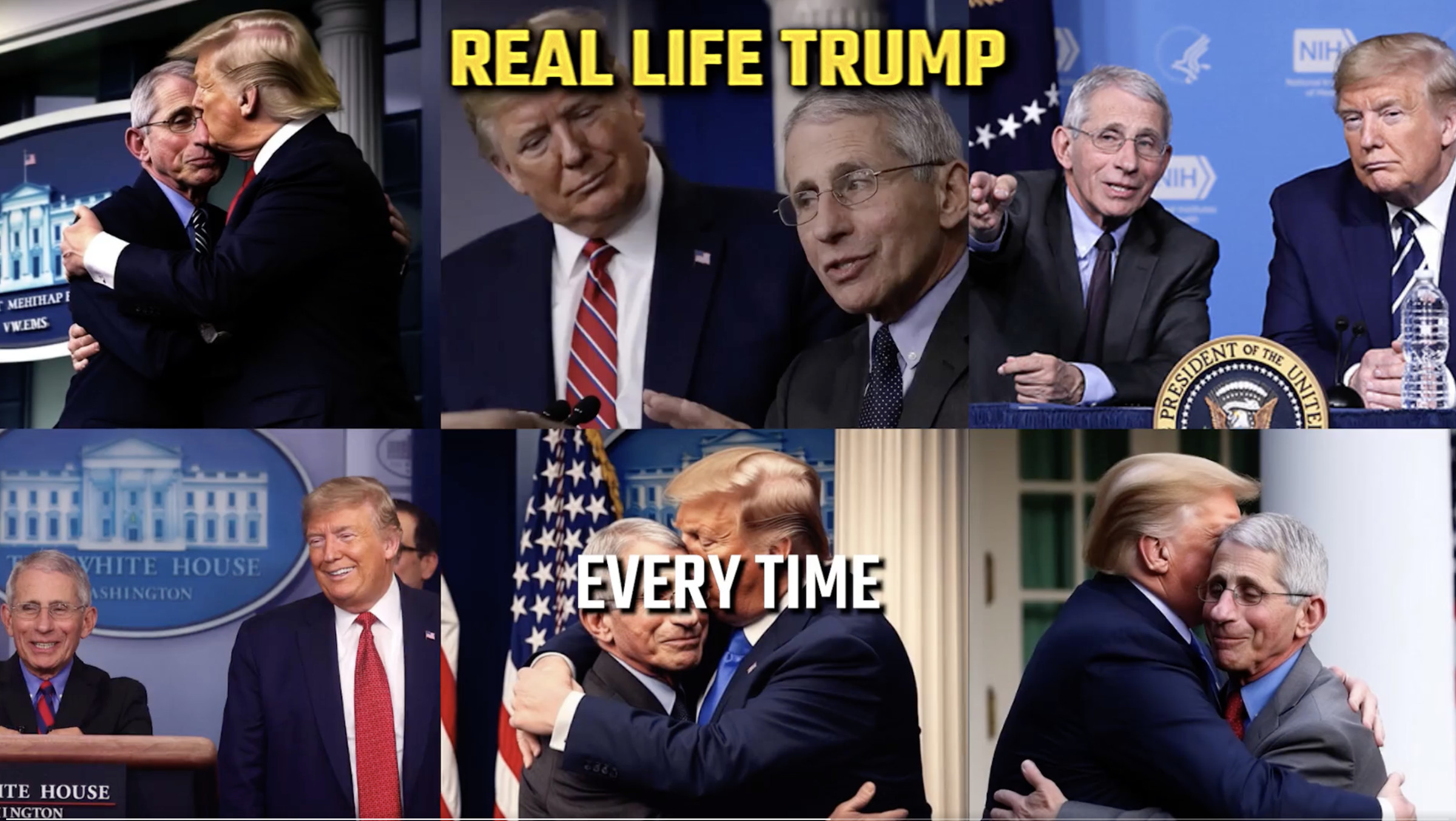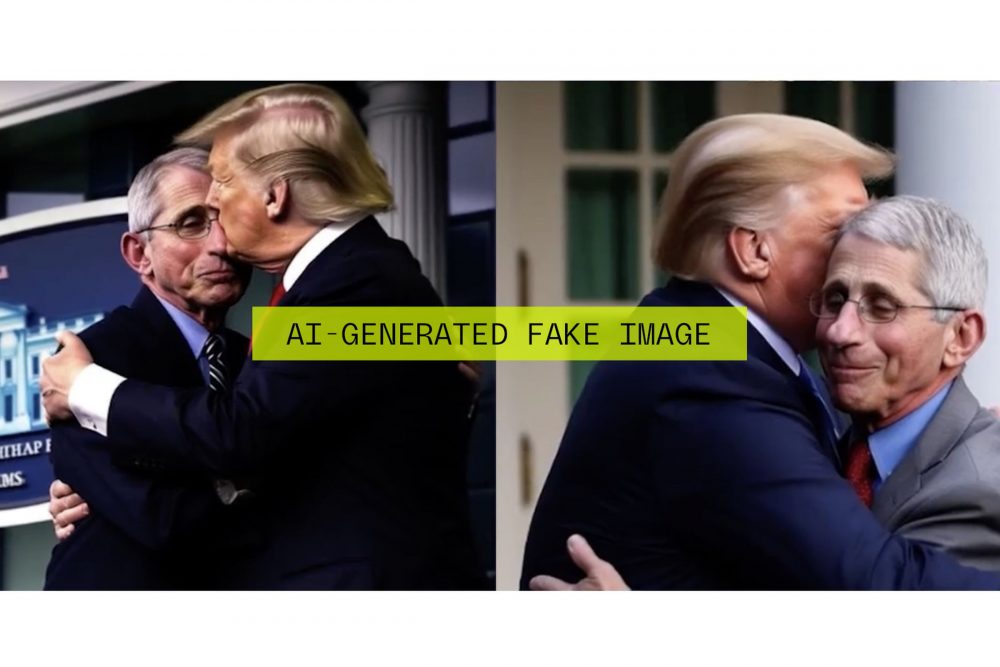Introduction
In a concerning development for the political landscape, the campaign supporting Ron DeSantis as the Republican presidential nominee in 2024 has employed the use of AI-generated deepfake images in an attack ad against rival Donald Trump. The controversial ad, which surfaced on June 5th, aims to emphasize Trump’s association with Anthony Fauci, the former White House chief medical advisor renowned for his role in shaping the US response to COVID-19. By leveraging AI-generated images, the DeSantis campaign seeks to portray a close collaboration between Trump and Fauci, exploiting the existing polarization surrounding the renowned medical expert.
AI-Generated Deepfakes: A Disturbing Strategy
The attack ad released by the “DeSantis War Room” Twitter account combines real clips of Trump discussing Fauci with a collage of images featuring the two figures. However, experts quickly identified that three of the six images appear to be AI-generated deepfakes. These fake images depict Trump embracing Fauci, strategically reinforcing the notion of a supportive relationship between the two individuals. While the authenticity of the remaining three images has been confirmed, the use of AI-generated visuals raises concerns about the potential manipulation of public perception.
Identifying AI-Generated Deepfakes
AFP, the renowned news agency, first discovered the discrepancy between the real and fake images. The AI-generated images lack results in reverse image searches and display distinct characteristics that indicate their inauthenticity. These tells include glossy and blurred textures, particularly in the hair and flesh of the individuals, physically unrealistic poses, and inaccurate reproductions of the White House press briefing room and its surroundings. Such inaccuracies become apparent when comparing the recreated signs and examining facial details that appear unnaturally posed or overly smooth.
Expert Opinions and Detection Challenges
Experts in image forensics, such as Hany Farid from the University of California, and digital media forensics expert Siwei Lyu, have both concluded that the AI-generated images used in the ad are highly likely to be fake. These professionals emphasize the importance of analyzing the visual anomalies and the inability to find them through reverse image searches. Their assessments further highlight the growing sophistication and normalization of deepfakes in the realm of US politics, raising concerns about the potential impact on public discourse and democratic processes.
AI in Political Campaigns: A Troubling Trend
The “DeSantis War Room” Twitter account, operated by Christina Pushaw, a political aide to Ron DeSantis, has consistently employed AI-generated content, suggesting a concerning trend in US political campaigns. The utilization of deepfakes and manipulated imagery aims to influence public perception and manipulate narratives. This development follows previous instances where Donald Trump himself shared AI-created images and audio deepfakes, showcasing a growing acceptance of these techniques within political discourse.
Matt Wolking, a spokesperson for the Never Back Down PAC supporting DeSantis’ campaign, defended the use of AI-generated imagery, accusing the Trump campaign of similar tactics. However, he declined to confirm or deny whether the images in question were indeed AI-generated, leaving the verification process open-ended.
Conclusion
The utilization of AI-generated deepfake images in the DeSantis campaign’s attack ad against Donald Trump raises alarming concerns about the potential manipulation of public opinion within the political arena. As deepfake technology becomes increasingly accessible and sophisticated, its integration into political campaigns poses a significant challenge to the integrity of democratic processes. It is crucial for policymakers, tech companies, and the public to remain vigilant and implement robust measures to detect and combat the dissemination of manipulated media. Safeguarding the trust and authenticity of political discourse is essential to preserve the democratic foundations upon which societies are built.





